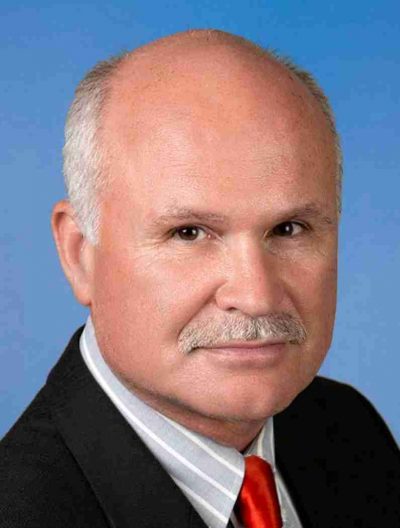
Mark Mortenson, Clene CSO
Clene Boosts Manufacturing, Hiring in Preparation of Potential Commercialization of ALS Add-On Treatment
As Clene Inc. gets closer to potential commercialization of its amyotrophic lateral sclerosis (ALS) add-on therapy CNM-Au8, the company is ramping up its manufacturing headcount to meet potential demand.
In December, the company received the benefit of a $1 million grant from the Maryland Department of Housing and Community Development to expand its manufacturing capacity in Elkton. The site is being added in order to increase Clene’s manufacturing capacity and support potential commercialization of its nanocrystal-based asset, CNM-Au8. Mark G. Mortenson, Clene’s Chief Scientific Officer, said the expansion of the company’s capacity in Elkton will provide them with forty-times their manufacturing capacity by 2025.
This is above and beyond the company’s current effort to expand its present capacity 3.5-times in its North East site, which Mortenson said would come online this year and further support the commercialization of CNM-Au8.
“This will give us plenty of capacity to support our ALS commercialization plans,” Mortenson explained.
Clene’s current manufacturing capabilities at the North East site have been enough to support the different clinical trials CNM-Au8 is being assessed in, but Mortenson said the company wants to be prepared for greater production. The site in Elkton has been cleaned and cleared and is ready for construction; however, Mortenson said Clene is taking it slow in order to ensure all FDA regulatory standards are met.
Clene’s CNM-Au8 is a bioenergetic nanocatalyst that is grown, by electrochemistry, in water. Patients drink down the tasteless water nano-suspension on top of standard treatments for ALS. With the company potentially approaching commercialization, Mortenson said the capacity for liquid processing has to be “bigger and better.” The nanocrystal manufacturing may have to be infinitely scalable.
As the company’s manufacturing space is expanding, Mortenson said Clene is also increasing its headcount. The company now employs about 100 people in Maryland, bolstering its ranks with local talent from area universities and colleges.
One place where Mortenson has successfully been able to recruit talent is Cecil College, which offers a biological laboratory skills certificate program that can ultimately transfer into an Associate of Science Degree in Bioproduction. Mortenson is also the President of the Board of Trustees at the college. He said the trustee position and his efforts to talk with high school students has provided him with a front-row seat to how some students have written themselves out of potential careers in the life sciences.
“I’ve figured out some new ways to communicate to young people so they can see themselves in roles where they hadn’t before,” said Mortenson.
The Cecil College Biological Laboratory Skills Certificate is an 18-hour credit program that provides basic education in some aspects of the industry. Mortenson said the certificate provides people with the basic kind of understanding where they can “walk into a life sciences company and be functional.”
He noted that the college has an articulation agreement with Thomas Jefferson University in Pennsylvania, which is home to the Jefferson Institute for Bioprocessing (JIB). The institute is one of the few places of higher learning in the United States that provides specialized education and training for biopharmaceutical processing.
The certificate program is only a few months old, but Mortenson said he is actively talking it up with both middle school and high school students, encouraging them to look at it as an opportunity to begin an exciting career within the life sciences industry.
Outside of the certificate, he also touted the education that Cecil College can provide at an affordable price.
“You can get a strong education and become a thriving employee at a company like Clene,” Mortenson said. “We have hired two graduates from the College’ having obtained BS degrees in Materials Science from Frostburg State while on the Cecil Campus.” Mortenson explained that each of the Clene associates were able to obtain a Bachelor’s Degree from Frostburg State for about $25,000 total. “An unbelievable bargain and the degree prepared the students for the jobs at Clene.” Mortenson said
Not only does Mortenson conduct outreach to high schools in Cecil County, he also continues to speak to Middle School students about the plethora of opportunities within the industry and through Cecil College that await them. Mortenson, who is also a newly-appointed member of the Maryland Department of Commerce Life Sciences Advisory Board, noted that speaking to youngsters about the life sciences before they are college-age can be critical to providing a future steady stream of talent to companies within the Maryland life sciences ecosystem.
Reaching youth across the state has been a recommendation from other members of the LSAB’s workforce development task force, which has pointed out that within the next five years, there are expected to be hundreds or thousands of available positions within the state’s life sciences companies. Recommendations from the task force have suggested that Maryland’s companies may need to look toward those who have two-year degrees or even no degrees to fill out the ranks of available positions. Mortenson agreed with that assessment. He added that part of his goal is to explain that not every position within a life sciences company is held by a scientist. There are numerous opportunities on the non-lab side of the house, he said.
“I’m really looking forward to teaming up with the LSAB and get the message out about potential careers in the life sciences,” Mortenson said.







